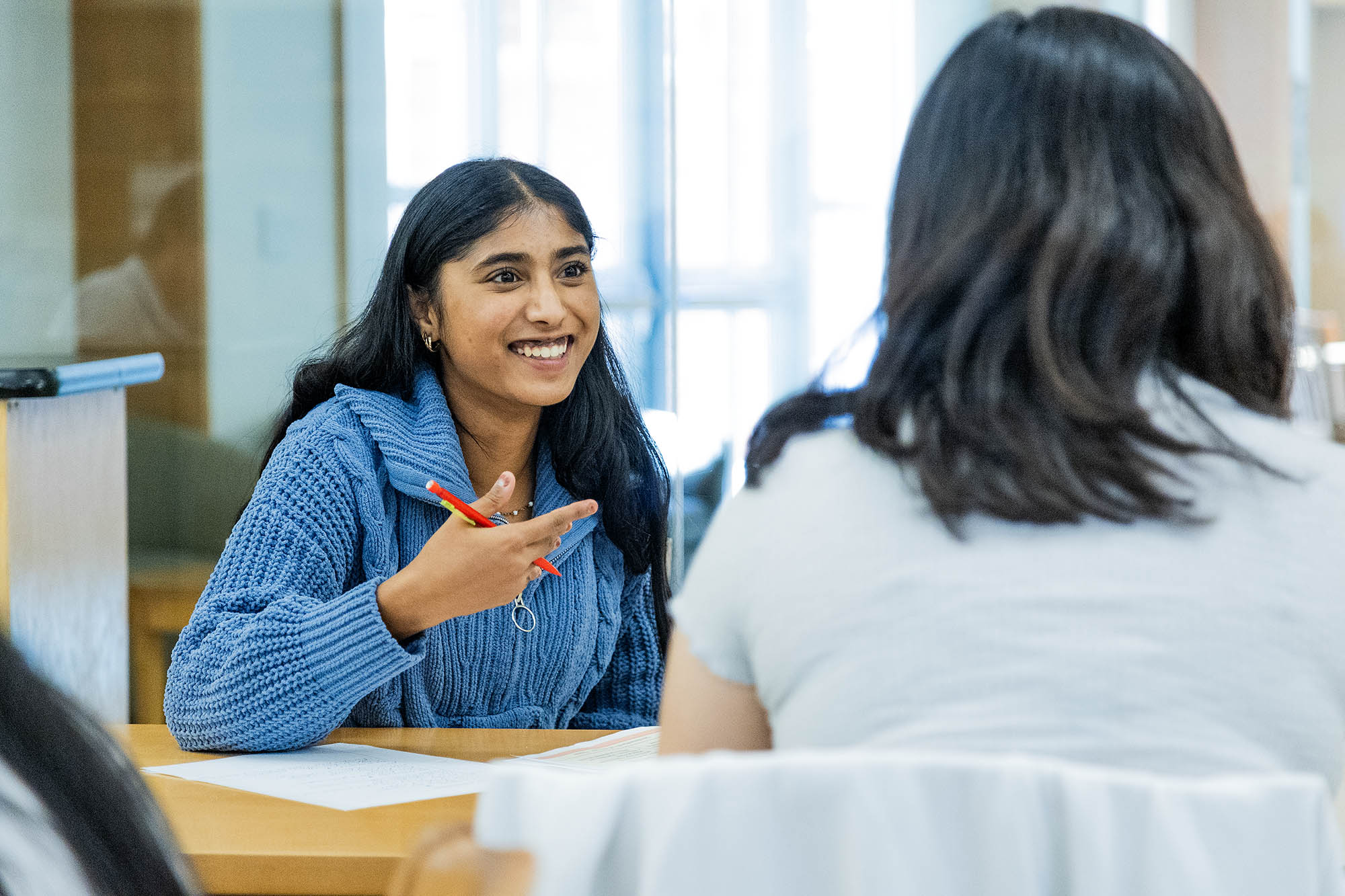The Value of Frameworks for AI
By Scott Small, Head of Upper School
Of the many things that distinguish the MICDS Upper School education, the indefatigable commitment to ensuring teaching and learning excellence has been both an enduring highlight and an increasingly critical lodestar as we work to meet the opportunities and challenges that have emerged with generative AI. While there are obviously substantive questions about Artificial Intelligence’s potential ability to disrupt the learning process for students, our Upper School faculty continue to strive to not only to mitigate the threat that AI presents to all of the factors that increase student intellectual growth—engagement in class, productive struggle, and critical thinking (to name the most vital and therefore at risk attributes)—but to also provide frameworks through which students can appropriately embrace the more promising aspects of AI to provide them opportunities to acquire future-ready skills and encourage inquiry and introspection. To put it more bluntly, we would do our students a disservice if we did not give them exposure to these tools, but we would also be doing them an even bigger disservice if we did not help them understand that misuse of these tools in the immediate will have grave consequences in terms of their own intellectual growth and future viability as thinkers and doers.
To spend time in an Upper School MICDS classroom, which I am fortunate enough to have the opportunity to do on a regular basis, is to understand just how important and unique and ultimately breathtaking our academic spaces are and just how removed AI is (and will likely always be) from the most important elements of teaching and learning. To watch our students and faculty wrestle together each and every day with historical issues, mathematical conundrums, literary themes, modes of artistic expression, scientific wonders, and a wealth of cultures and languages of the world is to affirm the value of ensuring the conversation begins and ends with human wondering and query. To the extent that AI can accelerate and accentuate that learning, we will continue to find avenues for student exploration of those tools, but our fundamental learning mode will always be with each other. As I have said on multiple occasions to our US students, if we do not want robots to replace us in the future, we cannot let them replace us now in our most formative stages of intellectual development and personal maturation.
Dr. D. Graham Burnett provided a critical reminder that education is as much about us as it is about what we learn, when he wrote recently: “What it is like to be us, in our full humanity–this isn’t out there in the interwebs. It isn’t stored in any archive, and the neural networks cannot be inward with what it feels like to be you, right now, looking at these words, looking away from these words to think about your life and our lives, turning from all this to your day and to what you will do in it, with others or alone. That can only be lived. This remains to us. The machines can only ever approach it secondhand. But secondhand is precisely what being here isn’t. The work of being here – of living, sensing, choosing – still awaits us. And there is plenty of it. (D. Graham Burnett, Will the Humanities Survive Artificial Intelligence, The New Yorker, April 26, 2025).
So our faculty will continue to be intentional about how and when AI will be used to supplement the learning process, but you as parents are a critical partner in supporting our students in making good decisions on their end as well to ensure that we are living fully into the fundamental promise of our Upper School in helping our students embrace intellectual curiosity, reflective awareness of self, and warm-hearted knowledge of others as members of our US learning community. The world they are poised to enter will demand nothing less.

